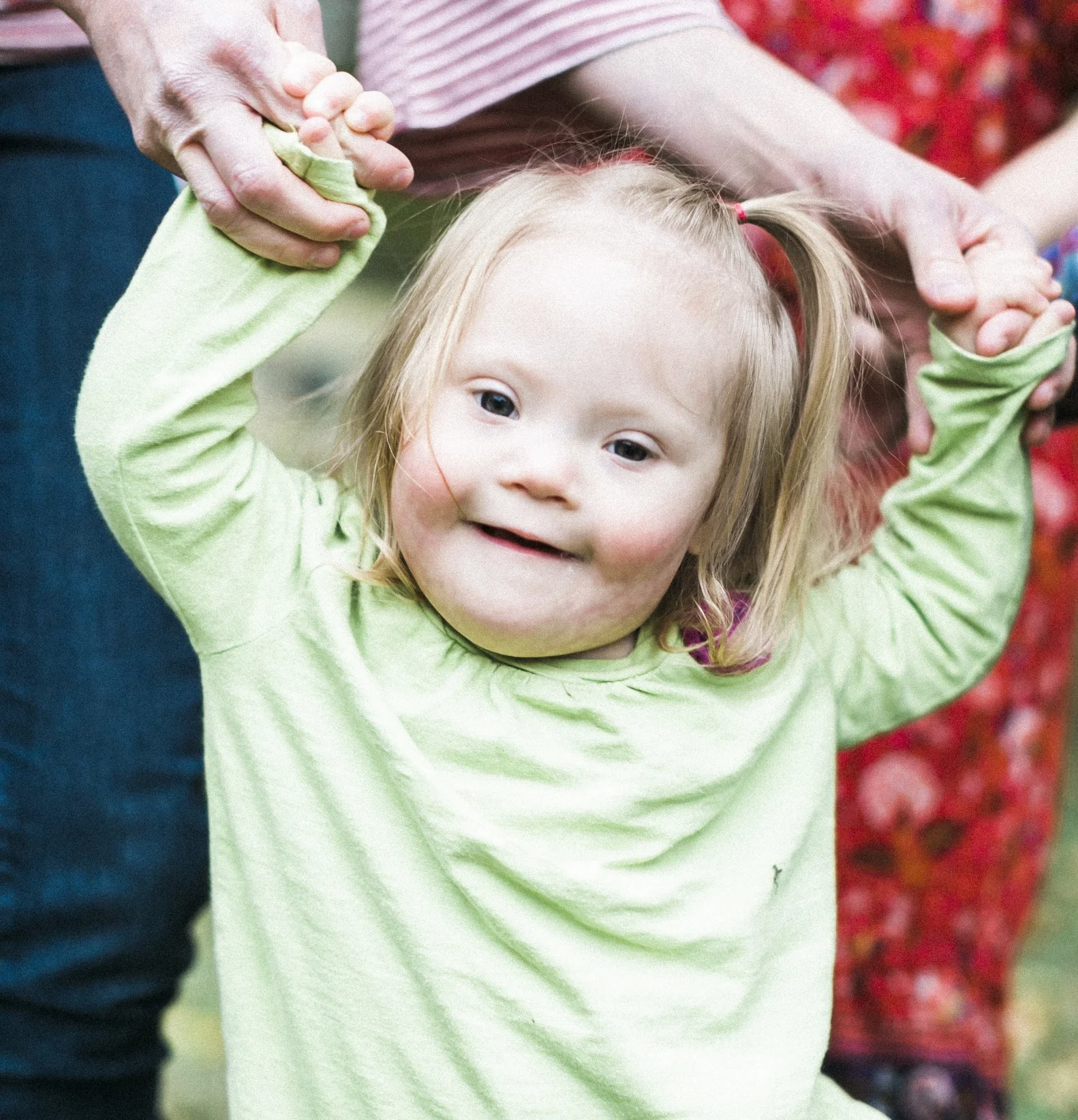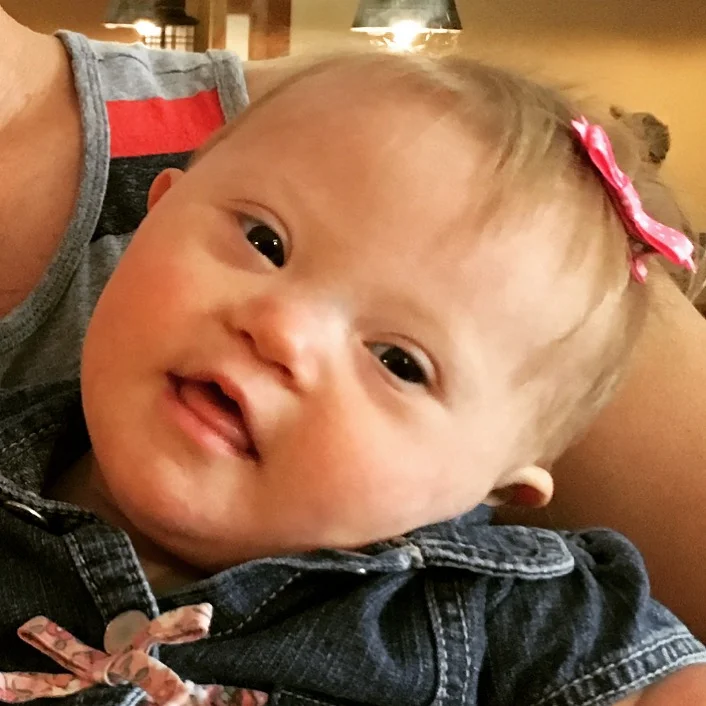The Ugly Christmas
Two Sundays ago, I cried at church. I guess “cry” isn’t a strong enough term for the catharsis that happened in one of the rooms of our children’s area…maybe “wept” would be a better description.
Public displays of emotion like this are not standard for me, and you can rest assured, the crying initially surprised me as much as it did the ladies with whom I was sharing. I guess the emotions themselves weren’t a complete surprise to me; I was aware of the sadness I’d been carrying. But the fact that these emotions had managed to escape my guarded heart definitely surprised me. You see, I had been walking around for a couple of weeks with a familiar ache bubbling beneath the waters of my heart. There had been many days where a foggy depression even plagued my spirit.
The source of my grief wasn’t hidden from me; I knew why I was sad. Alisa turned 2 on October 29th, and in so many ways, she is doing phenomenally well. We are, overall, grateful for her development. However, Alisa is not talking yet. Up until recently, this fact has not bothered me, as I know it takes longer for children with Down syndrome to reach their developmental milestones. Yet through several chance encounters and conversations over the last couple of months, I have been reminded of the possibility that Alisa may never talk. Because of various effects from her extra chromosome, she might be nonverbal, and this is a reality I’ve had to consider.
There’s no reason for us to anticipate she won’t talk. We work with her at home and in therapy, and we are still hopeful for the words we long to hear. She communicates pretty well with sign language, and she has always babbled freely. But we also cannot deny the possibility that she might not be verbal, or at least verbal to the extent that we long for her to be. And this possibility has made me very, very sad…hence, the weeping.
I’ve shared frequently of our great delight in Alisa and the beauty of her life, including everything that comes with her extra chromosome. Yet at times, grief still rears its ugly head in my heart, and this has been another one of those brief seasons of sorrow. It’s been a painful reminder that this world is not our home, that walking with Christ does not guarantee a pain-free life.
My pastor began our church’s Christmas series this past Sunday (listen to it here), focusing on the deep darkness which served as a backdrop to the birth of Christ. The prophet Isaiah described the setting like this:
“They will pass through the land, greatly distressed and hungry. And when they are hungry, they will be enraged and will speak contemptuously against their king and their God, and turn their faces upward. And they will look to the earth, but behold, distress and darkness, the gloom of anguish. And they will be thrust into this darkness.” (Isaiah 8:21-22, emphasis mine)
“The people who walked in darkness have seen a great light; those who dwelt in a land of deep darkness, on them has light shone.” (Isaiah 9:2, emphasis mine)
I’ve been sitting in this reminder lately, though it hasn’t been intentional. In the resurgent grief over my daughter’s diagnosis, I’ve lingered in the actuality of a broken world, a world consumed by darkness, a world where people suffer. And I hate it. I hate the effects of sin on my children, and in this case, especially on my youngest.
Our cultural tendency is to romanticize the Christmas experience. We watch movies about Christmas miracles, we work hard to create magical moments, and we obsess over having memorable experiences. The manger scenes are clean and beautiful, and the Christmas story is edited down to include brief pictures of incredible supernatural encounters.
Yet we easily forget something: the first Christmas was as ugly as it was beautiful. There were two main characters when Jesus was born — darkness and Light. And we cannot forget that darkness was very much a prominent force. God’s Son was born in an unsanitary, stinky stable (Luke 2:1-7); his parents became refugees, fleeing the country for their lives (Matt. 2:13-25); and a murderous king massacred countless baby boys under the age of 2 (Matt. 2:16-18). It was an ugly, beautiful Christmas.
The backdrop for the arrival of Jesus, the Light of the world, was darkness…our darkness. We aren’t simply victims of a wicked world. We were born into it, yes, but every single one of us has participated in, contributed to, and partnered with the darkness of this sinful land. Imprisoned by the darkness, we needed a Redeemer, a Light powerful enough to penetrate and overcome the darkness. We needed Jesus.
It’s tempting to gloss over the darkness. It’s easier this time of year, with all of the tinsel and toys, the carols and cookies. And I daresay it’s understandable that we want to forget, if even for a brief moment, the despair and evil that surrounds us. But I guess what I’m saying is, it’s okay to be sad at Christmas, too. In fact, sorrow has a place in our Christmas experience, because we have to remember the darkness to fully realize the power of the Light.
The Christmas message is this: Jesus is redeeming the brokenness. The first Christmas was ugly, and it was beautiful. And the ugliness should always make us sad. We can weep about this broken, dark world because that’s normal and natural and healthy. It’s honestly a hard place to live, and the toiling and suffering can be overwhelming at times.
But as Christ followers, we are never left in a hopeless or despairing place. The beauty of the first Christmas —God became Man, dwelling among us and ultimately destroying death’s grip on our souls — this is our joy and hope. The darkness no longer has a hold on us; He’s making all things new!
This world is not as it should be, but praise be to God, this world is no longer our home. And one day, Alisa will sing and dance and tell of God’s goodness, her mind and body fully restored as she worships before our King!








